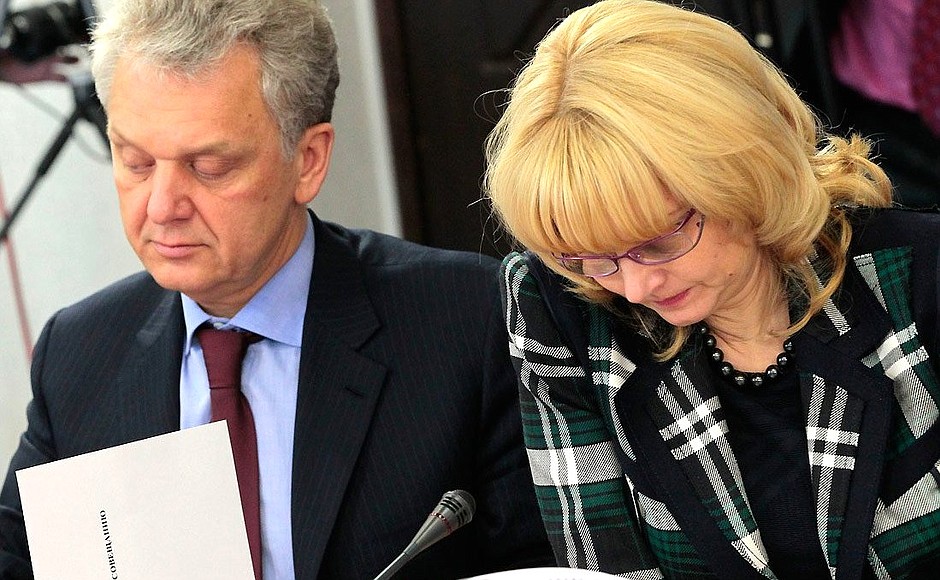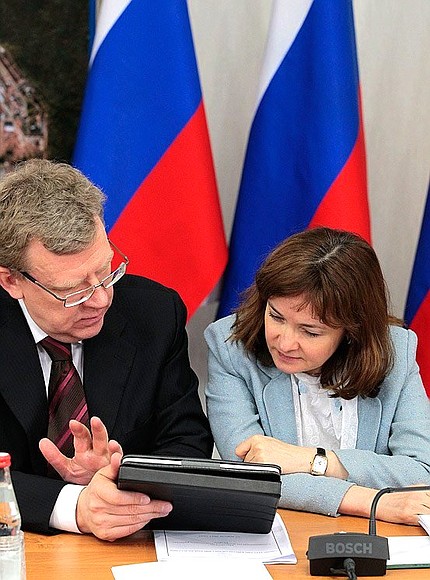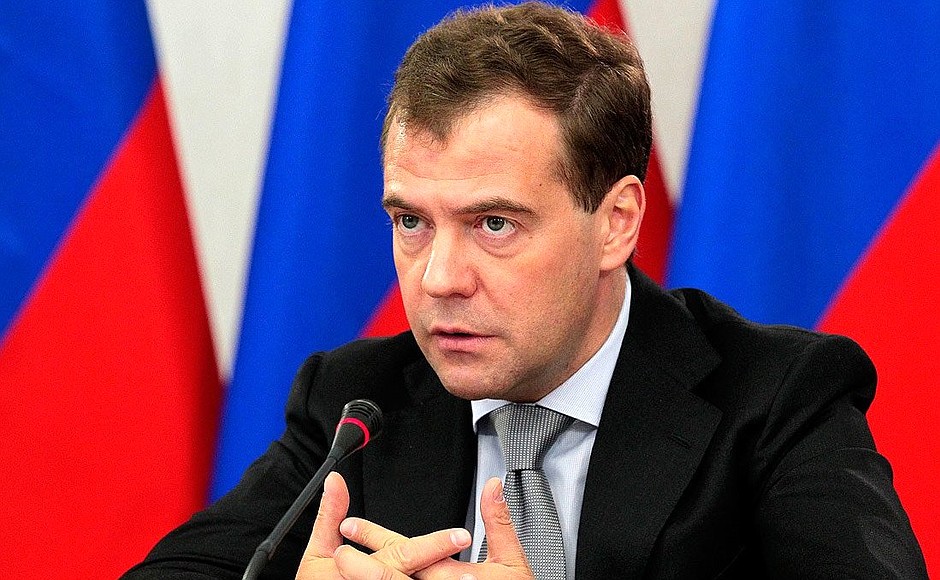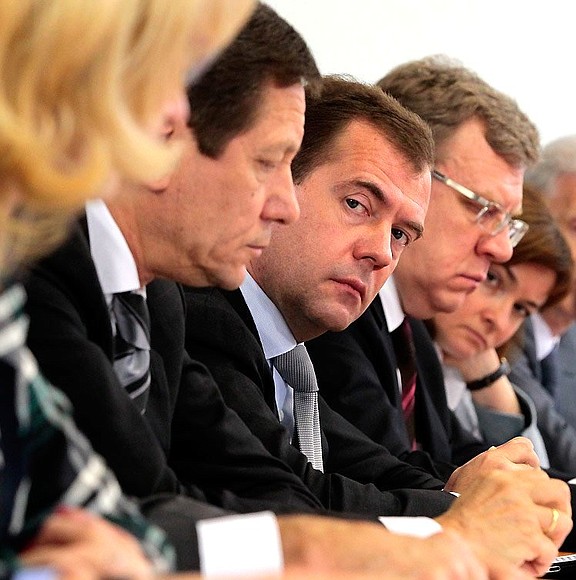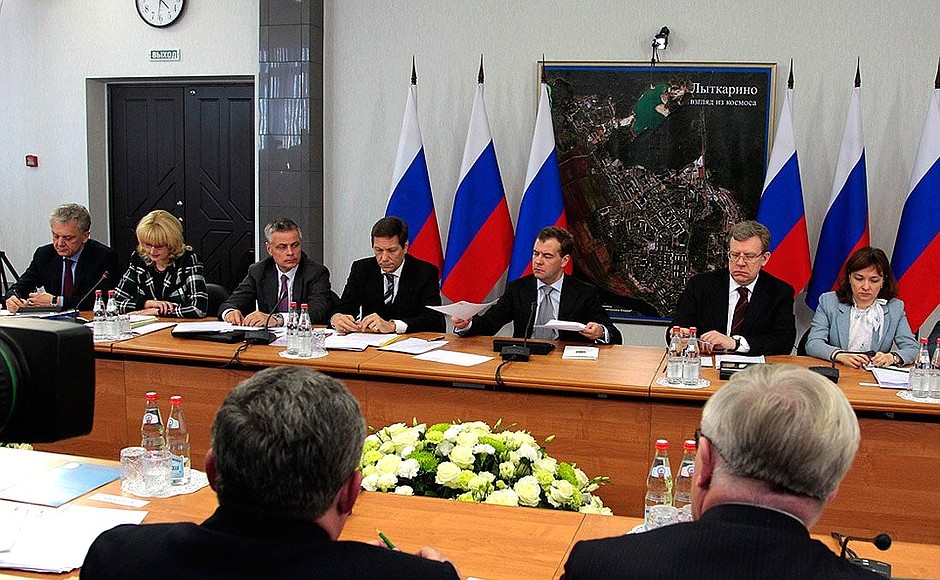* * *
President of Russia Dmitry Medvedev: Colleagues, today, we continue discussing the issues that we started to analyse closely not so long ago together with the Government. I am referring to the question of developing our pool of skilled workers.
We have already taken consistent steps to improve the situation with engineers, and now we have to look at what we can do to raise the status of workers, develop our vocational education system, and address related matters.
The problems in this area are systemic in nature and we are all well aware of their causes. If you compare the situation of workers here and in other countries, wages here are very low even by our overall standards, and it is a fact of life that workers often face very difficult working conditions. These are real sore points, including in terms of occupational health and safety.
”No matter what we do to attract capital to Russia, investors will not come unless they are sure that their investment will be supported by a qualified workforce.“
As we have already discussed, there is little interest in entering trades and vocational jobs. But talking with young people, here in Lytkarino, and in other places too, I do see that they are generally willing to enter these professions, but only so long as a number of conditions are met. First, they obviously want decent working conditions, decent wages for their labour. Second, they want the normal package of benefits that employers should certainly guarantee if they want to attract skilled workers to their businesses. And then there is the moral factor too, regularly mentioned at such meetings: social prestige and attention, media attention. These things are important too, even if not the main considerations.
Before we start work today, I want to stress one more point. At the meeting in Magnitogorsk I outlined the principles for improving our investment climate. But no matter what we do to attract capital to Russia, investors will not come unless they are sure that their investment will be supported by a qualified workforce. You can import new technology and bring in foreign engineers to set it up, but you can't import the workers. Practically nowhere do things happen this way. Workers are not an export good, but must be trained in the country receiving the investment.
We know that our labour productivity is much lower in industry and in infrastructure than in the developed economies. We are well aware of this. We can change this situation for the better by modernising our industrial facilities and launching new enterprises. Some regions are developing quite well overall, but in other regions the situation is much more problematic. We see a good example of development in Kaluga Region, where the launch of new industrial facilities boosted industrial output almost 1.5-fold last year. Of course, this success is partly thanks to the region’s good location close to the huge market that Moscow offers, but this is not the only explanation. After all, the situation is a lot worse in some of the other regions that also border the Moscow Region. It is not just a question of location therefore, but also of competent management and how effectively and energetically the company executives work. Wages in the Kaluga Region depend in large part on labour productivity and now exceed 50,000 rubles a month. Overall, this is a good example. We need to identify what is stopping these kinds of projects from going ahead successfully in other regions.
”Our labour productivity is much lower in industry and in infrastructure than in the developed economies. We can change this situation for the better by modernising our industrial facilities and launching new enterprises.“
We have to put in place the conditions that will encourage young people into working trades. The vocational educational system is crucial in this respect. We have discussed this matter at our earlier meetings. The problems here are not new: we are to design the right kind of cooperation between employers, future workers, and the trade unions and professional associations. It is also important to ensure the right kind of cooperation with the authorities too, and have the possibility and desire to react swiftly to changes in the economy.
Overall, we should settle the proposals today that will if not radically change the situation then at least start to improve it. Given that we have already discussed some of the related issues at earlier meetings, I propose that we do not go over what has already been said, but concentrate specifically on the concrete proposals for changing the laws and regulations in order to fix the various distortions that exist.
<…>
